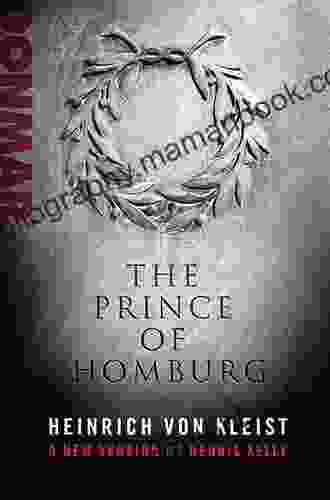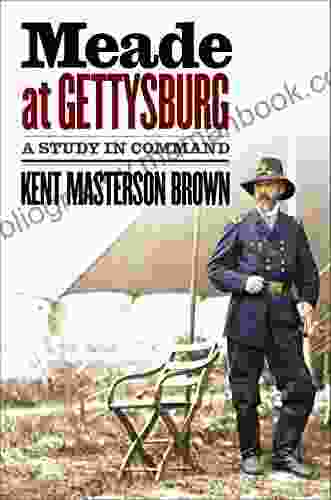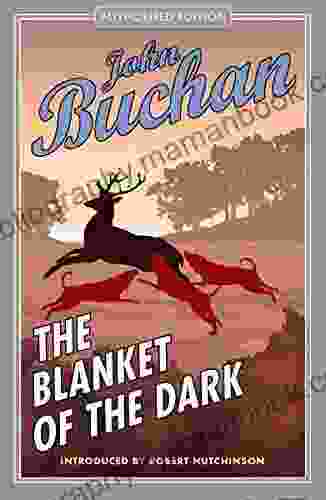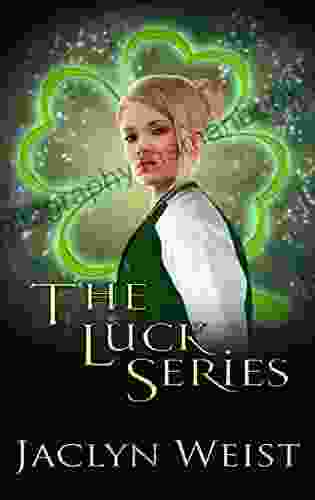The Prince of Homburg: A Modern Interpretation by H.R. Oberon

Heinrich von Kleist's "The Prince of Homburg" is a classic German play that has been captivating audiences for centuries. The play tells the story of a young prince who disobeys orders and leads his troops to victory. However, his disobedience comes at a price, and he is ultimately condemned to death.
4.5 out of 5
| Language | : | English |
| File size | : | 305 KB |
| Text-to-Speech | : | Enabled |
| Enhanced typesetting | : | Enabled |
| Print length | : | 95 pages |
| Screen Reader | : | Supported |
In recent years, there have been several modern adaptations of "The Prince of Homburg." One of the most acclaimed is H.R. Oberon's 2017 play, which premiered at the Royal National Theatre in London.
Oberon's adaptation is a faithful retelling of Kleist's original play, but it also updates the story for a modern audience. Oberon's play is set in a contemporary military setting, and it explores the timeless themes of duty, honor, and sacrifice.
Plot Summary
The play begins with the Prince of Homburg returning from a victorious battle. He is greeted as a hero by his troops and the people of Homburg. However, the Prince's triumph is short-lived. He is soon arrested for disobeying orders.
The Prince is brought before a military tribunal and charged with treason. He is found guilty and sentenced to death. However, the Prince is given a reprieve when the Elector of Brandenburg intervenes. The Elector pardons the Prince on the condition that he never again disobey orders.
The Prince is grateful for the Elector's mercy, and he vows to obey orders from now on. However, the Prince is soon faced with a difficult choice. He is ordered to lead his troops into a battle that he knows they will lose.
The Prince is torn between his duty to obey orders and his conscience. He knows that if he disobeys orders, he will be executed. However, he also knows that if he obeys orders, his troops will be killed.
In the end, the Prince chooses to disobey orders. He leads his troops into battle, and they are victorious. However, the Prince is killed in the battle.
Themes
Oberon's adaptation of "The Prince of Homburg" explores a number of timeless themes, including:
* Duty and Honor: The Prince of Homburg is a man of duty and honor. He believes that it is his duty to obey orders, even if he knows that those orders are wrong. However, the Prince also knows that he has a duty to his conscience. He cannot bring himself to obey orders that he knows will lead to the death of his troops. * Sacrifice: The Prince of Homburg is a willing to sacrifice himself for the sake of others. He knows that if he disobeys orders, he will be executed. However, he is willing to make this sacrifice because he believes that it is the right thing to do. * The Power of Conscience: The Prince of Homburg's conscience is ultimately the driving force behind his actions. He knows that he cannot obey orders that he believes are wrong, even if those orders come from his superiors. The Prince's conscience is a powerful force that guides his actions throughout the play.
Characters
The characters in Oberon's adaptation of "The Prince of Homburg" are complex and well-developed. The Prince of Homburg is a tragic figure who is torn between his duty to obey orders and his conscience. Other notable characters include:
* The Elector of Brandenburg: The Elector is a wise and compassionate ruler who understands the Prince's dilemma. He pardons the Prince on the condition that he never again disobey orders. * Natalie: Natalie is the Prince's beloved. She is a strong and independent woman who loves the Prince deeply. * Kottwitz: Kottwitz is the Prince's best friend. He is a loyal and supportive friend who always has the Prince's best interests at heart.
Setting
Oberon's adaptation of "The Prince of Homburg" is set in a contemporary military setting. This setting helps to update the story for a modern audience. The play explores the timeless themes of duty, honor, and sacrifice in a way that is relevant to today's world.
Style
Oberon's writing style is clear and concise. He uses simple language to tell a complex story. The play is written in blank verse, which gives it a classical feel.
Critical Reception
Oberon's adaptation of "The Prince of Homburg" has received critical acclaim. The play has been praised for its faithfulness to Kleist's original play, its updated setting, and its well-developed characters.
The Guardian called the play "a triumph" and said that it "is a must-see for anyone interested in theater." The New York Times said that the play "is a powerful and moving work of art."
H.R. Oberon's adaptation of "The Prince of Homburg" is a modern masterpiece. The play is a faithful retelling of Kleist's original play, but it also updates the story for a modern audience. The play explores the timeless themes of duty, honor, and sacrifice in a way that is relevant to today's world.
Oberon's writing style is clear and concise. He uses simple language to tell a complex story. The play is written in blank verse, which gives it a classical feel.
The play has received critical acclaim. The Guardian called the play "a triumph" and said that it "is a must-see for anyone interested in theater." The New York Times said that the play "is a powerful and moving work of art."
4.5 out of 5
| Language | : | English |
| File size | : | 305 KB |
| Text-to-Speech | : | Enabled |
| Enhanced typesetting | : | Enabled |
| Print length | : | 95 pages |
| Screen Reader | : | Supported |
Do you want to contribute by writing guest posts on this blog?
Please contact us and send us a resume of previous articles that you have written.
 Top Book
Top Book Novel
Novel Fiction
Fiction Nonfiction
Nonfiction Literature
Literature Paperback
Paperback Hardcover
Hardcover E-book
E-book Audiobook
Audiobook Bestseller
Bestseller Classic
Classic Mystery
Mystery Thriller
Thriller Romance
Romance Fantasy
Fantasy Science Fiction
Science Fiction Biography
Biography Memoir
Memoir Autobiography
Autobiography Poetry
Poetry Drama
Drama Historical Fiction
Historical Fiction Self-help
Self-help Young Adult
Young Adult Childrens Books
Childrens Books Graphic Novel
Graphic Novel Anthology
Anthology Series
Series Encyclopedia
Encyclopedia Reference
Reference Guidebook
Guidebook Textbook
Textbook Workbook
Workbook Journal
Journal Diary
Diary Manuscript
Manuscript Folio
Folio Pulp Fiction
Pulp Fiction Short Stories
Short Stories Fairy Tales
Fairy Tales Fables
Fables Mythology
Mythology Philosophy
Philosophy Religion
Religion Spirituality
Spirituality Essays
Essays Critique
Critique Commentary
Commentary Glossary
Glossary Bibliography
Bibliography Index
Index Table of Contents
Table of Contents Preface
Preface Introduction
Introduction Foreword
Foreword Afterword
Afterword Appendices
Appendices Annotations
Annotations Footnotes
Footnotes Epilogue
Epilogue Prologue
Prologue Kim Zubek
Kim Zubek Seth Ring
Seth Ring Pam Brandon
Pam Brandon Bengt Jangfeldt
Bengt Jangfeldt Lee Jackson
Lee Jackson Listastik
Listastik Michael Rotondo
Michael Rotondo Janet Dawson
Janet Dawson Heinrich Von Kleist
Heinrich Von Kleist Brandon Hatton
Brandon Hatton Uncle Sam
Uncle Sam Cynthia Eden
Cynthia Eden Suhaib Rumi
Suhaib Rumi Charlie A Beckwith
Charlie A Beckwith Debra Brede
Debra Brede Helen Thompson
Helen Thompson Hayden Trenholm
Hayden Trenholm Ann Leckie
Ann Leckie Nancy Harris
Nancy Harris Caterina Christakos
Caterina Christakos
Light bulbAdvertise smarter! Our strategic ad space ensures maximum exposure. Reserve your spot today!

 Mario Vargas LlosaLove Is Never Past Tense: Dive into a Captivating Collection of Romantic...
Mario Vargas LlosaLove Is Never Past Tense: Dive into a Captivating Collection of Romantic...
 Anton ChekhovThe Mostly Plant-Based Plan To Burn Fat, Boost Your Energy, and Crush Your...
Anton ChekhovThe Mostly Plant-Based Plan To Burn Fat, Boost Your Energy, and Crush Your... Quincy WardFollow ·12.2k
Quincy WardFollow ·12.2k Jamie BellFollow ·2.1k
Jamie BellFollow ·2.1k Henry David ThoreauFollow ·19.6k
Henry David ThoreauFollow ·19.6k Tom ClancyFollow ·12.9k
Tom ClancyFollow ·12.9k Elliott CarterFollow ·10k
Elliott CarterFollow ·10k Branden SimmonsFollow ·2.5k
Branden SimmonsFollow ·2.5k Clark CampbellFollow ·14.7k
Clark CampbellFollow ·14.7k Chris ColemanFollow ·3.7k
Chris ColemanFollow ·3.7k

 Patrick Rothfuss
Patrick RothfussHow to Make a Million Dollars: No Secrets
Making a million dollars...

 Robert Heinlein
Robert HeinleinResponse to Intervention, Second Edition: RTI in Practice
A Comprehensive Resource for Educators and...

 Timothy Ward
Timothy WardUnravel the Gripping Assassination Thriller Bursting with...
Prepare yourself for a...
4.5 out of 5
| Language | : | English |
| File size | : | 305 KB |
| Text-to-Speech | : | Enabled |
| Enhanced typesetting | : | Enabled |
| Print length | : | 95 pages |
| Screen Reader | : | Supported |














